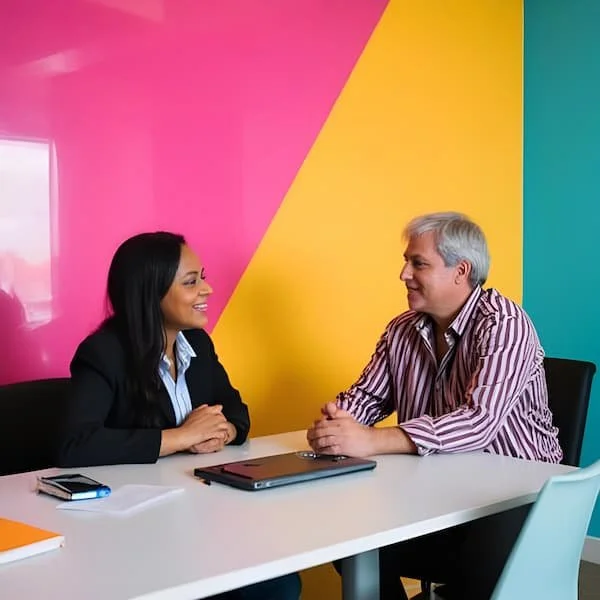What are Essential Conversations?
The way leaders talk — and listen — shapes everything that follows.
Progress, trust, performance, culture. All of it depends on the quality of the conversations that happen every day.
Essential Conversations are the ones that matter most.
They can be energising or uncomfortable, inspiring or difficult.
They’re the points where clarity, courage, and curiosity make the difference between frustration and growth.
“How leaders talk becomes how organisations think.”
Why conversations go wrong
Even skilled leaders can find certain conversations challenging.
Pressure, emotion, competing priorities, or lack of confidence can make it hard to stay clear and constructive.
The result is avoidance, defensiveness, or surface-level dialogue that never really gets to the heart of things.
“Many leaders know what they want to say — they just need the confidence and skill to say it well.”
What better conversations look like
When leaders have the right mindset and skill, conversations change.
They:
Address issues early and fairly
Give feedback that leads to progress
Handle disagreement without damaging trust
Coach and support others to think for themselves
Inspire people with purpose and belief
These are learnable skills — grounded in psychology, developed through practice, and refined through reflection.
Interested in building these skills across your organisation?
How we help
At Work Vibrant, we help leaders build conversational confidence through workshops and coaching programmes that combine psychology, evidence, and real-world experience.
Our work helps organisations:
Strengthen leadership capability at every level
Build a culture of openness, accountability, and learning
Turn conversations into a driver of performance and trust
Every programme is practical, research-informed, and designed to make a visible difference from day one.
From conversation to culture
Better conversations create better leadership.
And when leaders consistently model openness, accountability, and respect, those qualities ripple through the organisation — shaping how people think, communicate, and learn together.
That’s how cultures become more connected, more confident, and more capable of learning and adapting.




